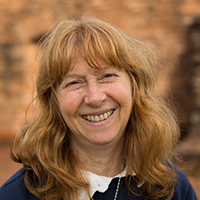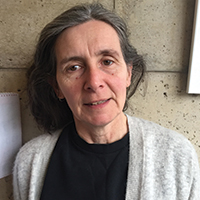Henrietta Cullinan from Kabul
This winter, as a peace delegate from Voices for Creative Nonviolence UK, I visited the Afghan Peace Volunteers (APV) in Kabul, a community of about 60 young men and women, who, at the same time as completing their studies, run the projects of the Borderfree Centre.
The volunteers, Hazara, Pashtun, Tajik, work together across ethnic boundaries, and practice Ghandian nonviolence. The APV strive for equality between the sexes as well as across ethnic lines, but in Afghanistan this project faces many obstacles.
Afghanistan has been a conflict zone since the Russians invaded in 1979. Following the Russians’ withdrawal from the country after a decade-long war against the US-backed Mujahideen in 1989, the Taliban emerged to grab power over the number of factions fighting to fill the power vacuum. Under the Taliban, originally a small band of madrassas students who studied over the border in Pakistan, women were forced to remain hidden, were banned from attending school, going out to work, and were even denied healthcare.
A month after the terror attacks in the US on 11 September 2001, the US invaded in an attempt to force the Taliban to give up Osama bin Laden – considered the architect of the terror attacks on the World Trade Center and The Pentagon.
While officially US and UK troops withdrew in 2014, both countries are committed to a military presence in Afghanistan for the indefinite future. The Taliban and Isis carry out regular attacks, some not far from where the Afghan Peace Volunteers are based. A report last year by the United Nations Assistance Mission in Afghanistan reveals that last year 3,498 civilians were killed in the conflict bringing the total number of ordinary citizens killed by government soldiers, insurgents, the Taliban, suicide bombers and land mines to just under 25,000 since 2009. Last year, 923 of those killed were children.
On this visit I share a room with Kathy Kelly, the international peace activist from Voices for Creative Nonviolence in Chicago. She writes: “In 2011, [..] young Afghan mothers told me that their inability to feed their children drove them to the brink of insanity. In 2017, Afghan women raise the same laments, struggling for survival as they face multiple abuses of basic human rights. Warlords, including the US military, ravage the country. Internally displaced people fill refugee camps, and Afghan people continually seek refuge beyond their country.
“A thin but radiant glimmer of hope: the community that welcomes me in Kabul has rejoiced because Zarghuna has become the first young woman in their community and the first woman from her village to graduate from University.”
Each night Kathy, Zarghuna and I arrange our sleeping mats around the wood stove in the middle of the room, reconstructed for the approaching winter.
For a few nights we are joined by Zarghuna’s mother, from Bamiyan province. She remembers that under the Russians, women in Kabul could be seen wearing short skirts and no headscarves. She herself had to marry at the age of 13 and go to live with her husband’s family so she is immensely proud of her daughter.
The young women at the Borderfree Centre tell me that at university, girls must do twice as well in their finals as boys, to overcome prejudices. Some parents will not allow their daughters to go to university, as classes are mixed. Another reason, the young girls tell me, is that fathers are worried that their daughters, in becoming educated, will “show the whites of their eyes”, in other words, they will become disrespectful. 
These are serious young women, responsible beyond their years, who organise duvet distributions, teach mathematics and literacy in the schools set up for street kids. However, they tell me, they are often harassed in the street. Passing men, even strangers, constantly ask them where they are going and if their parents know. Others said that even if their parents allow them freedom, they are still harassed by older family members.
On International Women’s day last year, the Afghan Peace Volunteers organised a ‘genderless’ bike ride similar to Critical Mass in London. On rented and borrowed bikes, wearing face masks against the diesel fumes, 40 young men and women took to the main high streets of Kabul, ignoring disapproving stares. Some of the girls were riding a bike for the first time. The boys helped to hold up traffic, across the three-lane highways, while the taxi drivers hooted impatiently. Various comments from the young women afterwards included: “I feel independent.” “We feel so good!” and “I’m free!”.
The APV organised a performance of the Afghan national dance, the Attan, in a public park to show that different ethnicities, Hazara, Pashtun and Tajiks could dance together. Passersby were encouraged to join in, a real example of community participation. But despite being traditional, a national dance in public with both genders participating freely seems a long way off.
For the poor and destitute the situation is desperate. Seamstresses, who sew scarves and duvets, at the Borderfree Centre tell me how they struggle to afford basic food, such as beans and potatoes. They watch Saudi-style apartment blocks going up, and assume that aid money is going into ministers’ pockets rather than on infrastructure projects that would benefit the poor. “The government doesn’t care about us,” the women say.
Despite recent assurances, from the Afghan president, Ashraf Ghani, that women’s rights are a priority, the legacy of the Taliban period is still present in legislation, according to Human Rights Watch. A woman is still officially not allowed to leave home without a male family member to chaperone. This makes it hard for women to work even now.
Although there is a new generation of women who have finished school and been to university, older prejudices amongst older generations still remain. I have heard of women harassed so badly in the workplace they have to leave their jobs, and women suspicious of every potential employer, wondering whether he will demand sexual favours.
We visit the mother of one of the volunteers. She lives in a traditional mud brick courtyard dwelling, along with her extended family and children. There is a well in the centre of the courtyard and one latrine in the corner that her household shares with two neighbours. The other women peer through their windows at us westerners as we pick our way over the uneven ground and shuffle off our shoes at the entrance to her house.
We sit awkwardly around the wood stove, fired up to stifling in our honour. We share a meal of hot, sweet spinach and rice. By the time we have finished eating, darkness has fallen, the stove cools down, the small children come and lean up against us.
In conversation, I reveal that I am about to become a grandmother. Our friend’s mother is curious about me. She tucks her scarf behind her ears, as far to the back of her head without falling off. I almost forget where I am, all the worries about security and the difficult journey home disappear.
The exchange of realisations, that we have much in common, that we are necessary for each other, is the beginning of solidarity, and so becomes transformative.
Henrietta Cullinan is a peace activist and writer. She was born in London. She studied Architecture and then Philosophy before raising a family and working in Further Education teaching adult literacy and English. She recently travelled to Kabul, Afghanistan as a member of a peace delegation with Voices for Creative Nonviolence UK.4
Read more about the people of Afghanistan:
http://ourjourneytosmile.com/blog/2016/03/genderless-bikes-in-afghanistan/
www.ourjourneytosmile.com/blog/
www.youtube.com/user/ourjourneytosmile
www.vcnv.org.uk




 Loading ...
Loading ...
What do you think?
You can post as a subscriber user ...
User comments (0)